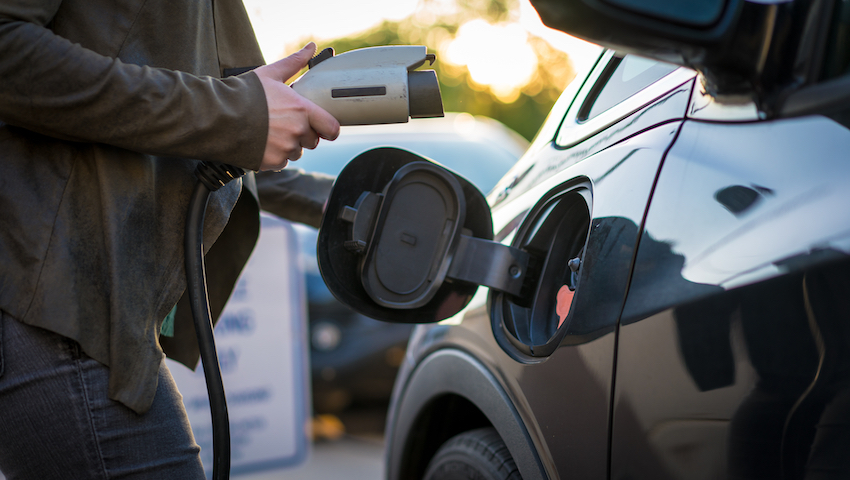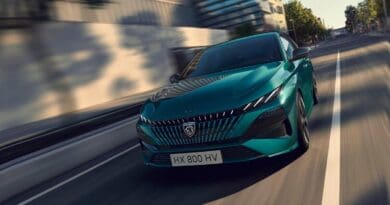
Five UK cities make the top 10 for the best EV uptake and air quality
Research from Vanarama has found that five UK cities have made it into the top ten list for the best electric vehicle uptake and air quality in Europe.
Vanarama analysed the 50 most populated European cities, sourcing data on total passenger cars and the proportion of electric vehicles to calculate the number of EVs per 100,000 of each city’s population. These figures were then scored alongside air quality stats to give a score out of 100. The higher the score, the stronger the correlation between the uptake of electric cars and air quality.
Glasgow, sharing 3rd place with Stockholm, has a score of 94, with British cities Birmingham (88), Nottingham (87), and Sheffield (85) following closely behind. Interestingly, Glasgow had the lowest air pollution out of all 50 cities with 5.6μg/m3.

In 2017, the World Health Organisation reported that Glasgow was more polluted than London, however following the introduction of the Low Emission Zone the following year, air quality improved. This only applied to local bus services, so when it is rolled out to all vehicles in 2023, there is expected to be an even bigger improvement in air quality.
The UK is experiencing a growing adoption of EVs, with March this year showing the highest volume of electric registrations ever recorded in one month – an increase of 79% from the previous year.
However, in terms of air pollution, the UK in general is failing to meet legal limits of nitrogen dioxide pollution, largely generated by vehicles, in other cities and areas. According to research, London is 1.9 times over the legal limit for air pollution, followed by South Wales and Eastern England. One of the main reasons for this is increasing levels of private car ownership and traditional vehicles.
Unsurprisingly, the city with the highest score of 96 is Oslo in Norway, a country which has been hailed for its wide-ranging policies transforming perceptions of EVs. Norway is leaps and bounds above the rest of Europe when it comes to registering new EVs, with there being 11,129 per 100,000 people. EVs also account for more than a fifth (21.9%) of the country’s total cars.
By comparison, London has only 1,676 per 100,000 of its population. Norway’s strategy to accelerate the uptake of EVs was making them affordable enough to purchase through lower taxes while increasing taxes on traditional cars.
Oslo’s air quality also ranked well at 7.5μg/m3 – good enough for the fifth-best figure in our research. The UN Environment Programme reports that EVs have helped reduce CO2 emissions in the Scandanavian city by 35%, improving air quality and protecting public health. Consequently, Norway has the lowest risk of premature deaths due to air pollution.
In second is Swedish city Goeteborg, with a score of 95, closely followed by Stockholm in fourth place with 94 points. The Swedish capital boasts 3,001 EVs per 100,000 people and an air quality of 6μg/m3, putting it in the top 10% of countries.
Sweden is continuing the Scandinavian trend of EV uptake through a number of innovative legislations that go beyond subsidies for the purchase of a plug-in or full electric, for example, EV drivers get free public parking across many cities and are even able to use bus lanes. While countries like the UK have been plunged into an energy crisis, Sweden’s low electricity prices have helped encourage EV purchases – with prices being some of the lowest in Europe.
Analysing the 50 most populated European cities, Vanarama sourced data on total passenger cars and the proportion of electric vehicles (EVs) to calculate the number of EVs per 100,000 of each city’s population. These figures were then scored alongside air quality stats to give a score out of 100.
The higher the score, the stronger the correlation between the uptake of electric cars and air quality.
Where the number of EVs wasn’t available, Vanarama applied the percentage of electric cars in the relevant country to the city’s total number of cars.
To avoid the influence of external factors on our research, cities in Ukraine and Russia have been removed from the results.





